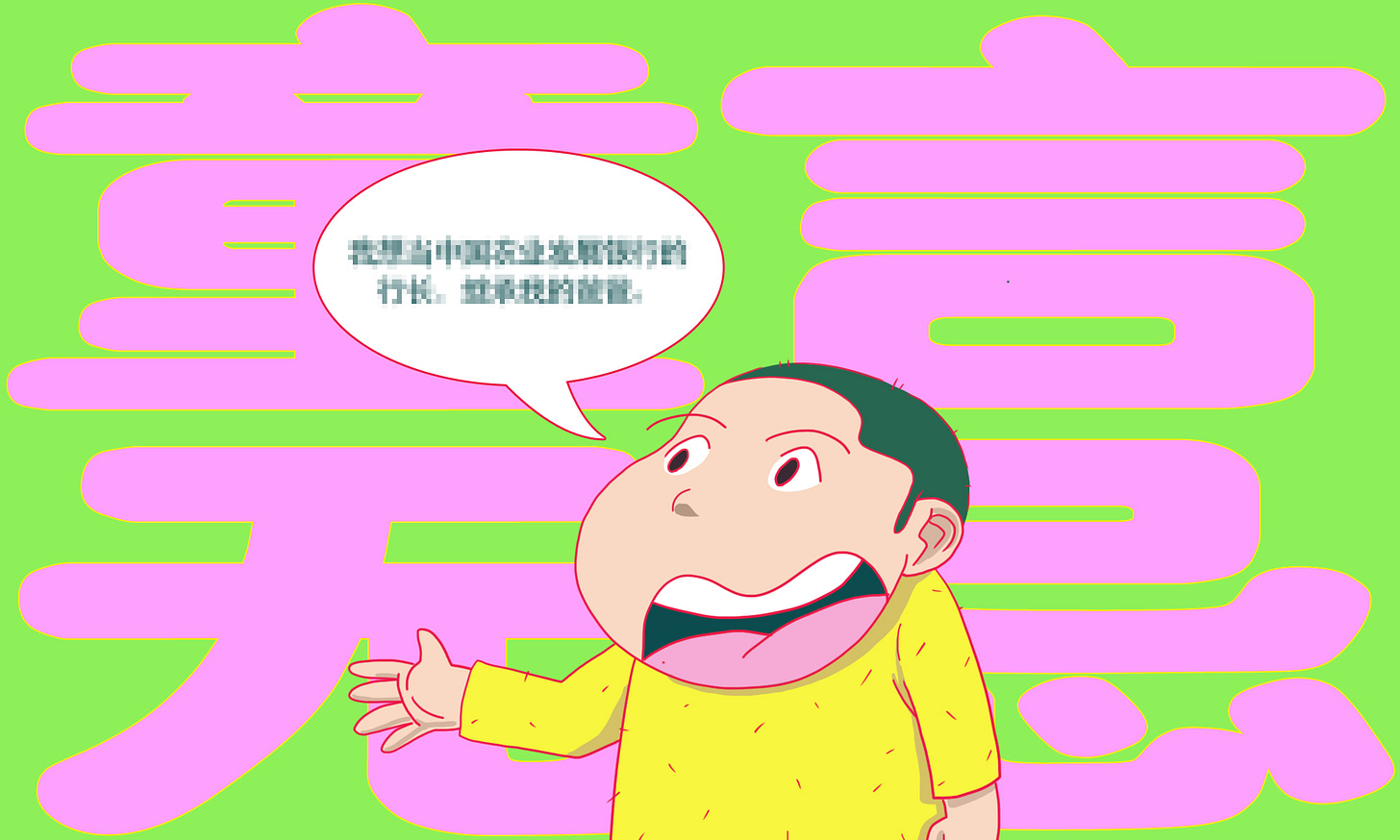"A child speaks the truth" — Phrase of the week
A viral social media post of a child speaking in class tells a truth about nepotism in China.

Our phrase of the week is: "children simply speak their mind" (童言无忌 tóngyán wújì).
Context
On April 3, a video of a primary school student speaking in class sparked heated discussions online.
In the video, the schoolboy talks earnestly about his dream:
I want to succeed my father to become the president of the Agricultural Development Bank of China. Because my grandfather was the president of the bank and my mother is the vice president, I want to inherit our family assets.
我想当中国农业发展银行的行长,继承我的爸爸。因为我的爷爷是中国农业发展银行的行长,我的妈妈是中国农业发展银行副行长,所以我想继承我们的家产。
Wǒ xiǎng dāng zhōngguó nóngyè fāzhǎn yínháng de hángzhǎng, jìchéng wǒ de bàba. Yīnwèi wǒ de yéyé shì zhōngguó nóngyè fāzhǎn yínháng de háng zhǎng, wǒ de māma shì zhōngguó nóngyè fāzhǎn yínháng fùhángzhǎng, suǒyǐ wǒ xiǎng jìchéng wǒmen de jiāchǎn.
The problem with that dream, according to reactions online, is the assets of Agricultural Development Bank (ADB), as a state-owned company, belong to the state, not a family.
The attention led to ADB commenting on what the boy said. The bank released a statement confirming the child is the son of a branch president of the bank, while his grandfather was a bank employee who retired over 20 years ago, and his mother is also an employee of the bank.
Most comments pointed to how the boy had unintentionally and innocently spoken the truth:
Children simply speak their mind. I think what the boy inadvertently said may not be accurate, but it's generally true. [1]
童言无忌。我觉得小孩子无意中说出来的信息,不一定精确,但大致可信。
Tóngyán wújì. Wǒ juéde xiǎoháizi wúyìzhōng shuōchūlái de xìnxī, bùyīdìng jīngquè, dàn dàzhì kěxìn.
And with that we have our Sinica Phrase of the Week.
What it means
"Children simply speak their mind" is a four-character idiom which directly translates as: "children speak" (童言 tóngyán), "no offense" (无忌 wújì).
The idiom is credited to Bā Jīn 巴金, the pen name of a Chinese anarchist, political activist, translator, and writer who lived between 1905 and 2005.
The idiom first appears in the most famous novel of Ba Jin’s trilogy, The Family (家), published in 1958.
The semi-autobiographical story chronicles inter-generational conflict of old ways and progressive aspirations in an upper-class family in Chengdu in the early 1920s following the New Culture Movement (新文化运动), which revolted against the traditional values of Confucianism.
The original passage reads:
Because Jue Qun said something unlucky in the living room, the great-grandfather wrote a red note saying "Children simply speak their mind, so take no offense and good fortune will come", and pasted it on the doorpost.
老太爷因为觉群在堂屋里说了不吉利的话,便写了“童言无忌,大吉大利”的红纸条,拿出来贴在门柱上。
Lǎotàiyé yīnwèi juéqún zài tángwū lǐ shuōle bùjílì dehuà, biàn xiěle “tóng yán wú jì, dà jí dà lì” de hóng zhǐtiáo, náchūlái tiēzài ménzhù shàng.
This eight-character couplet, which includes our idiom, was often put up by superstitious families during Chinese New Year to dispel the potential bad luck brought by inauspicious things said by their kids.
In modern Chinese, "children simply speak their mind" is a common idiom which means “no offence should be taken at the words of a child”.
But in the context of what the schoolboy said in relation to his family assets and ADB, it also suggests the child has inadvertently spoken the truth of the importance of family background, and the pervasive nepotism that many say still exists in China’s state sector.
So we translate this Phrase of the Week as "a child speaks the truth".
Andrew Methven is the author of RealTime Mandarin, a resource to helping you learn contemporary Chinese in context, maintain and improve your Mandarin skills, and stay on top of the latest language trends in China.
Read more about how this story is being discussed in the Chinese media in this week’s RealTime Mandarin.


